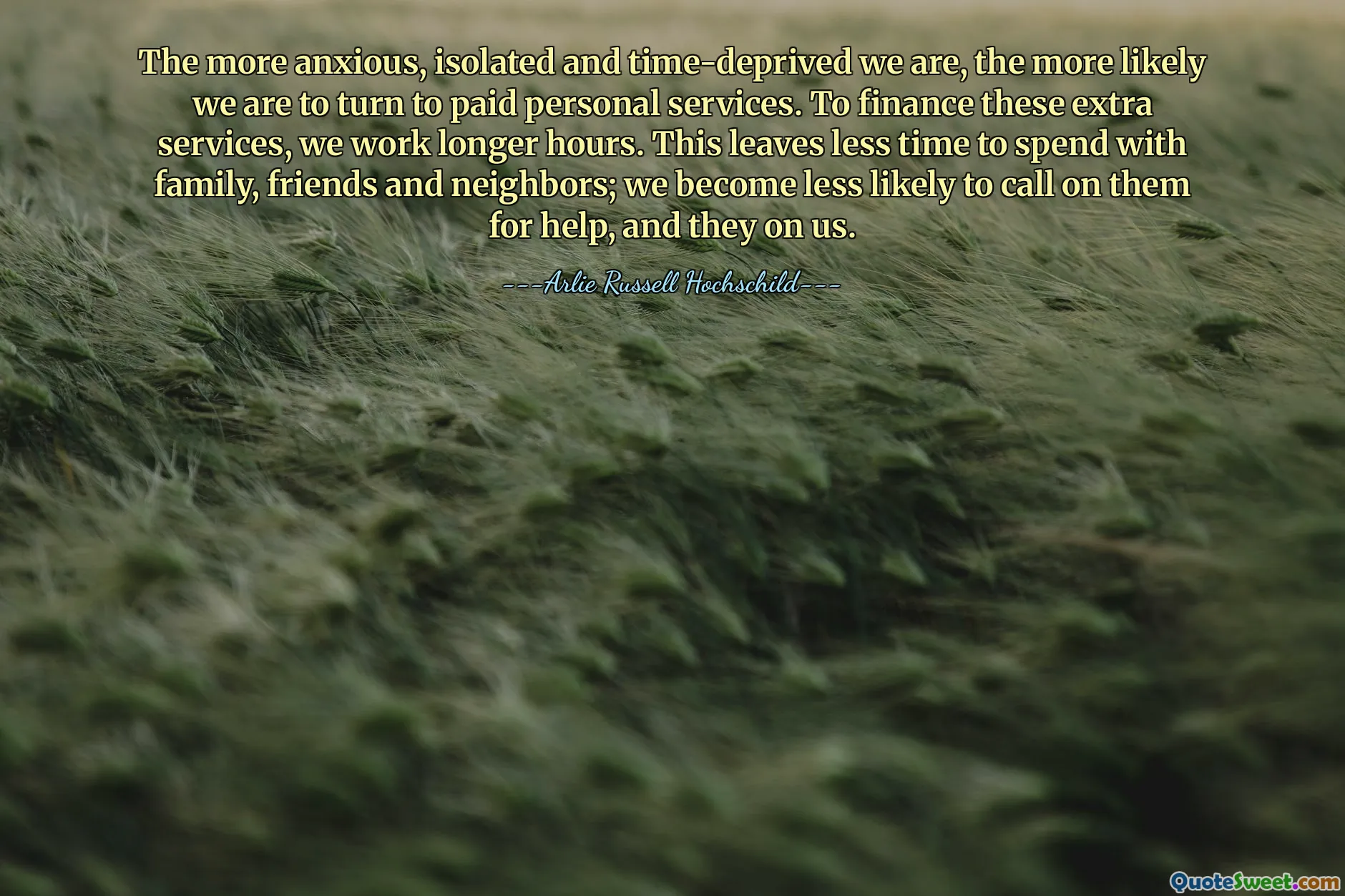
The more anxious, isolated and time-deprived we are, the more likely we are to turn to paid personal services. To finance these extra services, we work longer hours. This leaves less time to spend with family, friends and neighbors; we become less likely to call on them for help, and they on us.
This quote highlights a self-perpetuating cycle of modern social and personal life that can deeply affect individual well-being and community cohesion. As people grapple with increasing anxiety, loneliness, and hectic schedules, they may seek external help through paid services to manage their daily burdens, whether for domestic tasks, emotional support, or companionship. While these services can provide much-needed relief, they also hinge on the need to work longer hours in order to finance them. This necessity often results in reduced personal interaction with loved ones and neighbors, weakening the social fabric that traditionally provides emotional support and resilience.
The erosion of direct social bonds can further intensify feelings of isolation, creating a paradox where seeking external help for personal or household tasks inadvertently deepens emotional loneliness. This reverse causality fosters a cycle where external dependencies replace genuine human connections, possibly exacerbating feelings of anxiety and social disconnection over time. The quote prompts us to think critically about the societal values that prioritize productivity and economic growth over community building and mental health.
It also raises questions about how modern life might be restructured to create more balanced lifestyles—where time spent in meaningful, face-to-face interactions is valued more highly, and social services are integrated with community support systems. Recognizing these patterns can inspire efforts to foster stronger local connections and develop social infrastructures that reduce dependence on paid services, thus promoting healthier, more connected societies.
Overall, the quote is a compelling reminder of the importance of nurturing human relationships and reconsidering how work, technology, and social policies can be aligned to improve our collective well-being.







